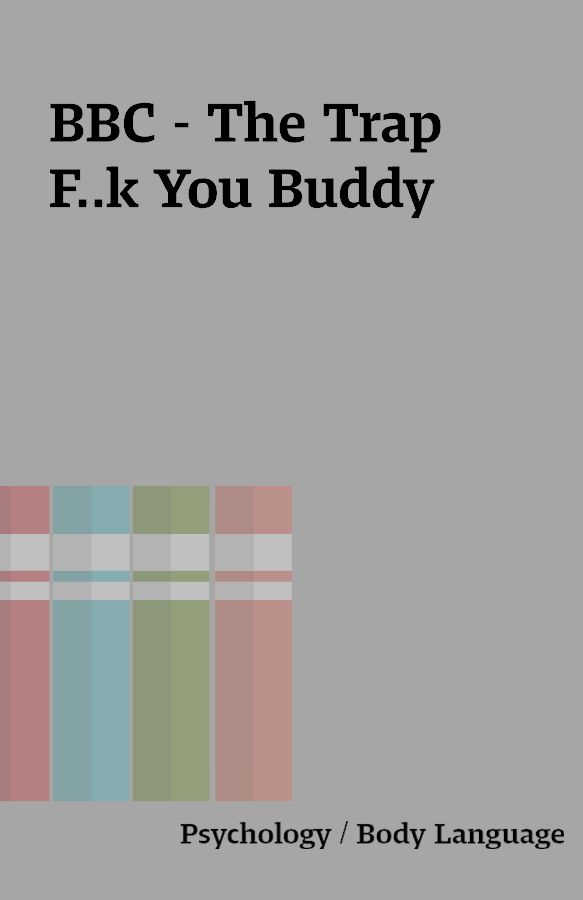BBC – The Trap F..k You Buddy
BBC_TheTrap_FuckYou Buddy.avi
[1 DVD – Rip]
Description
It examines the rise of game theory during the Cold War and the way in which its mathematical models of human behaviour filtered into economic thought. The programme traces the development of game theory with particular reference to the work of John Nash, who believed that all humans were inherently suspicious and selfish creatures that strategised constantly. Using this as his first premise, Nash constructed logically consistent and mathematically verifiable models. He invented system games reflecting his beliefs about human behaviour, including one he called “Fuck You Buddy” in which the only way to win was to betray your playing partner. These games were internally coherent and worked correctly as long as the players obeyed the ground rules that they should behave selfishly and try to outwit their opponents, but when RAND’s analysts tried the games on their own secretaries, they instead chose not to betray each other, but to cooperate every time. This did not, in the eyes of the analysts, discredit the models, but instead proved that the secretaries were unfit subjects.What was not known at the time was that Nash was suffering from paranoid schizophrenia, and, as a result, was deeply suspicious of everyone around him—including his colleagues—and was convinced that many were involved in conspiracies against him. It was this mistaken belief that led to his view of people as a whole that formed the basis for his theories. Footage of an older and wiser Nash was shown in which he acknowledges that his paranoid views of other people at the time were false.Archive interview with R.D. Laing whose work in psychiatry led him to model familial interactions using game theory. His conclusion was that humans are inherently selfish, shrewd, and spontaneously generate strategems during everyday interactions. Laing’s theories became more developed when he concluded that some forms of mental illness were merely artificial labels, used by the state to suppress individual suffering. This belief became a staple tenet of counterculture during the 1960s. Reference is made to the Rosenhan experiment, in which bogus patients, surreptitiously self-presenting at a number of American psychiatric institutions, were falsely diagnosed as having mental disorders, while institutions, informed that they were to receive bogus patients, “identified” numerous supposed imposters who were actually genuine patients. The results of the experiment were a disaster for American psychiatry, because they destroyed the idea that psychiatrists were a privileged elite able to genuinely diagnose, and therefore treat, mental illness.
You must be logged in to post a review.






Reviews
There are no reviews yet.